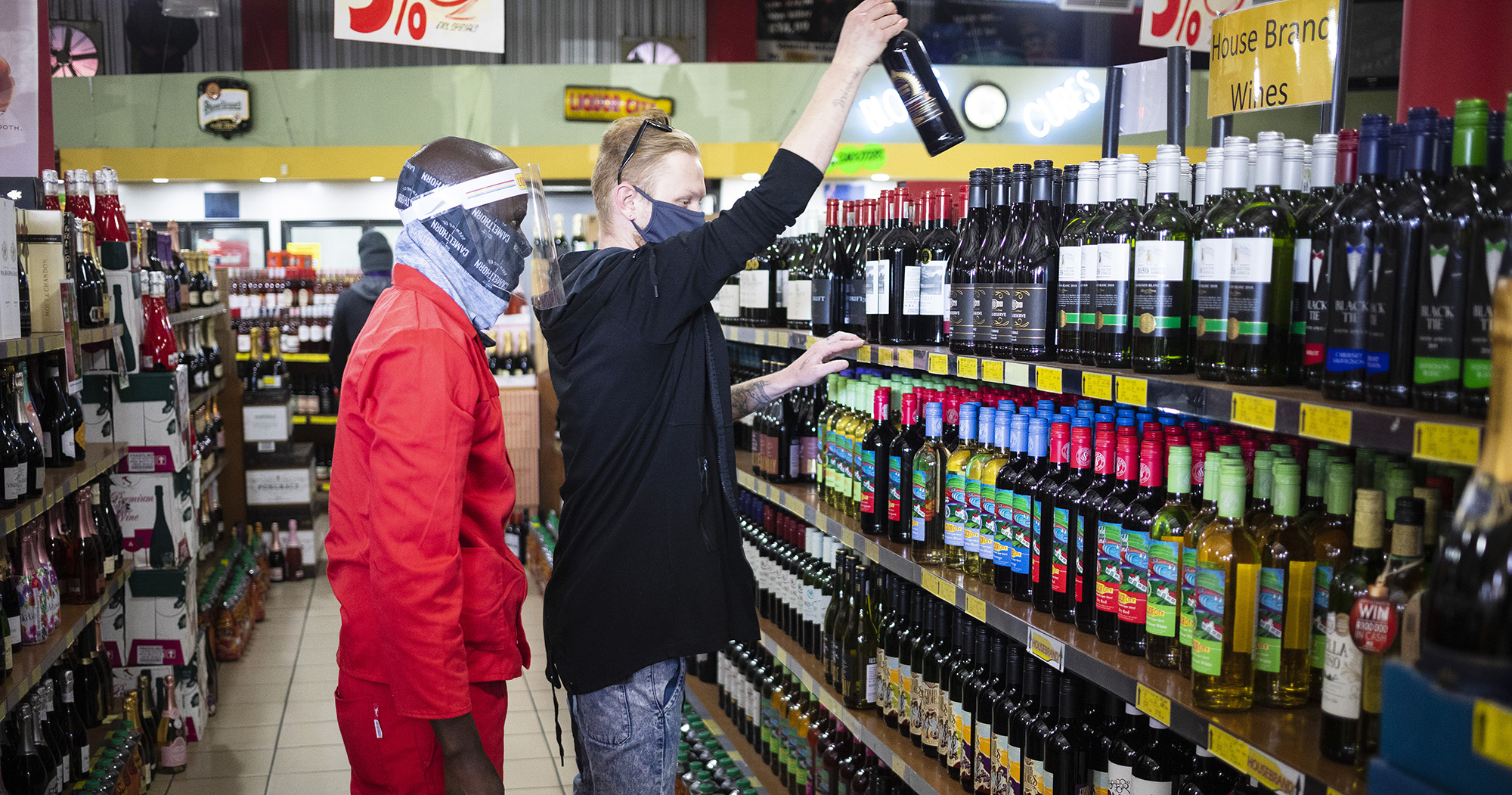Ingrid Louw is CEO of aware.org.za, a harm-reduction agency/body for the alcohol industry.
The growing national debate over the management and consumption of alcohol is a really valuable one – whether you’re a prohibitionist or a realist.
There’s no doubt that alcohol use – and abuse – has come increasingly into focus during the pandemic, primarily because of the government’s view that alcohol consumption somehow contributes to the spread of the coronavirus, whether directly or indirectly.
This has triggered a range of views – some informed by research, others driven perhaps by misconceptions and prejudice – which are put forward to motivate for or against a continued lockdown ban.
The Association for Alcohol Responsibility and Education (aware.org.za), the organisation I lead, sits firmly in the group that believes the abuse/harmful consumption of alcohol – not the use of alcohol – is the major challenge, and this needs to be the real focus of attention.
As a harm reduction agency/body for the alcohol industry, aware.org.za is as concerned as anyone about the images of young South Africans dancing with bottles on their chins or foreheads in violation of lockdown regulations, and in some cases underage drinking and binge drinking. These images have become a rallying point for abolitionists; alcohol abuse is portrayed as a new Covid-era phenomenon, a particularly prominent icon of the pandemic that can only be dealt with by an outright ban on liquor sales.
But, as anyone who works in the field of alcohol harm reduction will tell you, excessive or binge drinking and underage drinking have been a long-lasting feature of South Africa’s social landscape, long before the pandemic, and we need to understand the root causes so that we can find sustainable solutions.
Also, studies show that the likelihood of harm is a complex interaction of factors – personality, family, and cultural background. Put that in the mix of South Africa’s triple threat of poverty, inequality and unemployment, and South Africa’s alcohol harm is disproportionate to other countries that consume more alcohol than us but have less alcohol-related harm.
Our research (and yes, we paid for it – but that’s because we wanted evidence-based approaches to harm reduction) – shows that the twin dangers of binge drinking and underage drinking need to be managed by a combination of control and education.
The “control and educate” model is based on several pillars:
- Tighter management by traders: the industry is actively driving interventions to get traders to play their part in ensuring responsible trading and drinking. This includes not serving alcohol to people who have clearly exceeded their limit, not serving alcohol to pregnant women, and definitely not selling to people who are underage.
- A more responsible approach by marketers. The alcohol industry has developed a code of best practice for advertisers and brand managers to ensure they do not encourage under-age drinking and avoid promoting the concept that excessive drinking is “cool”.
- Increased advocacy around a government health code, which will hopefully consist of actual government minimum drinking guidelines – as is global best practice.
- In addition, on underage drinking, our research is showing that teenagers are able to purchase alcohol from alcohol stores. This is illegal. As aware.org.za, we are working with alcohol traders – whether on-site, off-site, or online – to educate them about their responsibility to insist on ID verification and related compliance.
Ultimately, though, it comes down to the need for a concerted whole-sided and multi-stakeholder national effort to address and explain the dangers of underage drinking, binge drinking, drinking while pregnant or walking/driving drunk.
And that also means you: if you’re encouraging minors to fetch a drink for you from the fridge, or sending your child to the nearest outlet to buy drinks, you’re playing a role in promoting under-age drinking. All our research shows that exposure to alcohol at an early age inevitably leads to under-age drinking. Only you have the power to stop that – by being a responsible parent or elder.
Our research also shows that peer pressure is a major contributor to under-age drinking and binge drinking, far beyond what people may see in adverts or the movies. Only you have the power to stop that – by telling your friends and family when they’ve had enough, and why it’s harmful to drink excessively.
And if you are a heavy drinker yourself, only you have the power to know the limits, stay within those limits, and behave responsibly.
As I said at the beginning of this article, the national conversation around alcohol use and abuse is a valuable one. Sadly, as the lockdown has critically affected the alcohol industry and its extended value chain, including hospitality, and emboldened those who would like to see alcohol banned forever, the arguments have become more positional. This is not helpful. It has polarised role players who could and should come together to create solutions to address the harmful consumption of alcohol in our communities.
Arguing over research models, blaming the low price of some brands, calling for alcohol in smaller bottles – these ideas do not produce realistic solutions to the massive challenge we face as a people. They do not address the dire need for awareness and collective action that is needed if we are to bring about real behavioural change.
What would be beneficial for all – drinkers, teetotallers, traders, marketers and law enforcement agencies alike – is a national conversation in which we put our heads together and do some sober thinking, if you’ll excuse the pun, around how we reduce alcohol harm.
If we did that, we’d not only save lives – we would also save livelihoods. DM




